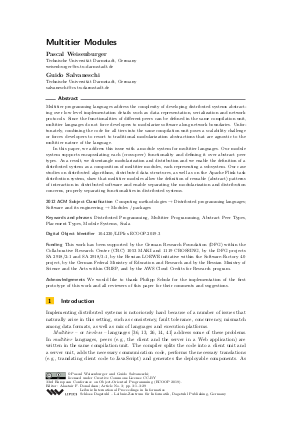LIPIcs.ECOOP.2019.3.pdf
- Filesize: 0.65 MB
- 29 pages

 Creative Commons Attribution 3.0 Unported license
Creative Commons Attribution 3.0 Unported license



















































Feedback for Dagstuhl Publishing